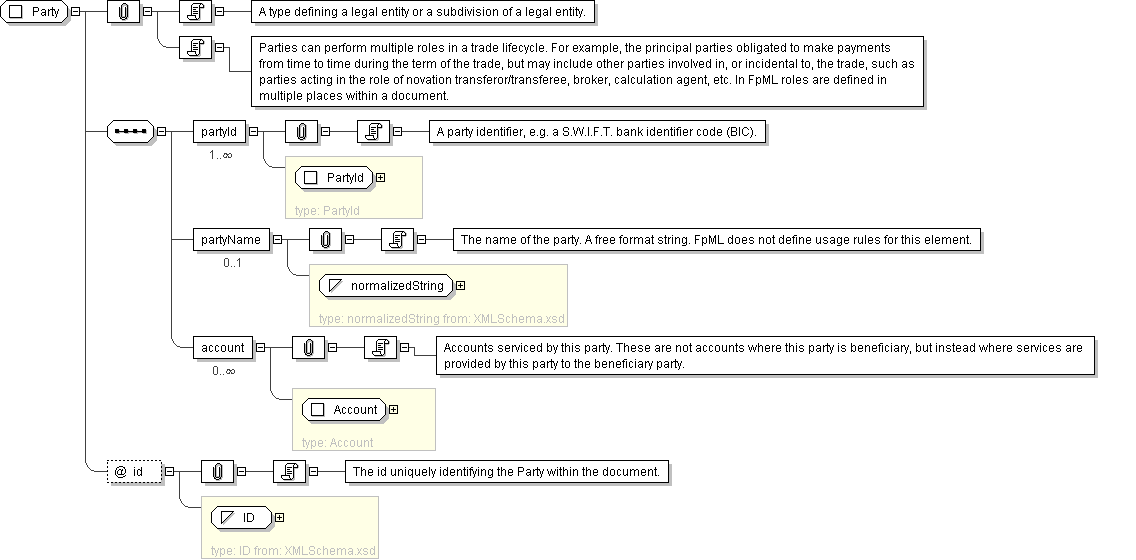Diagram

| Super-types: | None |
|---|---|
| Sub-types: | None |
| Name | Party |
|---|---|
| Abstract | no |
| Documentation | A type defining a legal entity or a subdivision of a legal entity. Parties can perform multiple roles in a trade lifecycle. For example, the principal parties obligated to make payments from time to time during the term of the trade, but may include other parties involved in, or incidental to, the trade, such as parties acting in the role of novation transferor/transferee, broker, calculation agent, etc. In FpML roles are defined in multiple places within a document. |
'The id uniquely identifying the Party within the document.'
">'A party identifier, e.g. a S.W.I.F.T. bank identifier code (BIC).'
'The name of the party. A free format string. FpML does not define usage rules for this element.'
'Accounts serviced by this party. These are not accounts where this party is beneficiary, but instead where services are provided by this party to the beneficiary party.'
